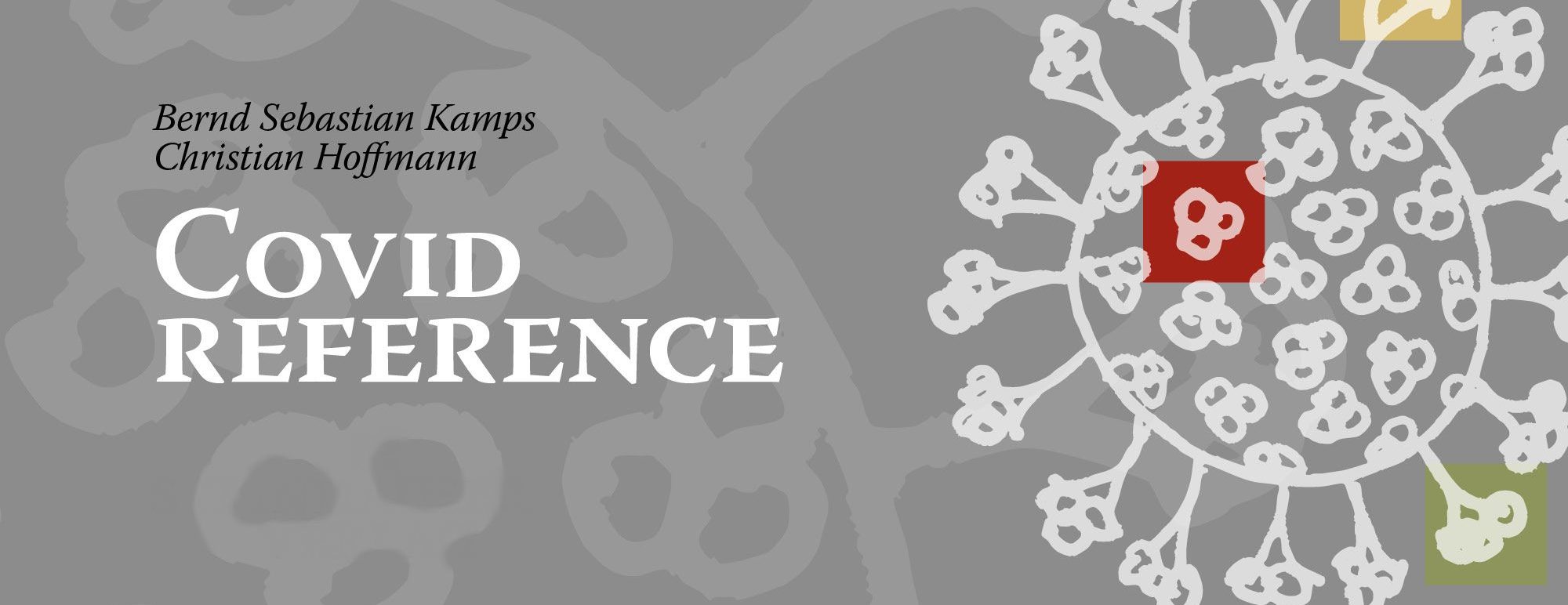Home | TOP 10 | DEU | ENG | ESP | FRA | ITA | POR | TUR | VNM
By Christian Hoffmann &
Bernd S. Kamps
5 June
Deutsch | Español | Français | Italiano | Português | Tiếng Việt | Turkish | 中文
Google Translate has an excellent reputation for accuracy, but it isn’t perfect and does make mistakes. So use it with caution. In particular, be careful in relying on Google Translate for any important matter (health, treatment, etc.). In case of doubt, ask your friends.
Lancet and the NEJM: Retractions
We suspected it. Yesterday, two papers that were considered milestones in COVID-19 research (and were well-reviewed in our Top Ten section) were retracted by the authors.
Which papers are we talking about?
- The first is a NEJM paper reporting that ACE inhibitors had proven to be harmless.
Mehra MR, Desai SS, Kuy S, Henry TD, Patel AN. Cardiovascular disease, drug therapy, and mortality in Covid-19. N Engl J Med. DOI: 10.1056/NEJMoa2007621.
Mehra MR, Desai SS, Kuy SR, Henry TD, Patel AN. Retraction: Cardiovascular Disease, Drug Therapy, and Mortality in Covid-19. N Engl J Med. June 4, 2020. https://doi.org/10.1056/NEJMc2021225
“Because all the authors were not granted access to the raw data and the raw data could not be made available to a third-party auditor, we are unable to validate the primary data sources underlying our article, “Cardiovascular Disease, Drug Therapy, and Mortality in Covid-19.” We therefore request that the article be retracted. We apologize to the editors and to readers of the Journal for the difficulties that this has caused.”
- The second is a Lancet paper of the same group in which chloroquine-based therapies were more dangerous than effective.
Mehra MR, Desai SS, Ruschitzka F, Patel AN. Hydroxychloroquine or chloroquine with or without a macrolide for treatment of COVID-19: a multinational registry analysis. Lancet May 22, 2020
Mehra MR, Ruschitzka F, Patel AN. Retraction—Hydroxychloroquine or chloroquine with or without a macrolide for treatment of COVID-19: a multinational registry analysis. Lancet June 4, 2020. https://www.thelancet.com/journals/lancet/article/PIIS0140-6736(20)31324-6/fulltext
“After publication of our Lancet Article, several concerns were raised with respect to the veracity of the data and analyses conducted by Surgisphere Corporation and its founder and our co-author, Sapan Desai, in our publication. We launched an independent third-party peer review of Surgisphere…(they) informed us that Surgisphere would not transfer the full dataset.” “We deeply apologize”, and so on.
Apologize? This is inexcusable. Both papers are probably based on fake data. Gathered together and fantasized by a mailbox company. It is of concern to see how in the current situation the pressure on science is exploited by unscrupulous authors. And how such crooks will play into the hands of conspiracy theorists. But let’s also hope that it be an incentive for these high-ranked medical journals to take a closer scrutiny of the submitted data in the future.
Scientific publishing is a fantastic business model and you’re always surprised that everyone participates. Scientific authors write the manuscripts for free (they have to publish), according to rigorous instructions for authors, thick as a book. Reviewers read the submitted manuscripts within a few days, again, for free (they want to get their own papers peer-reviewed). There are many journals where authors are required to pay charges “to share in the high costs of production”. Or supplemental data fees. Or reprints. They are all extra. On the other hand: readers pay. Subscribers pay, institutional subscribers pay (a lot). Pharmaceutical companies pay (a lot) for supported supplements. Conference organisations pay to get their abstract supplements published. In addition there is advertising revenue.
But where is the substantial contribution of the journals, apart from editing and layout? One has to take these cases as an opportunity to reflect on the practice of scientific publishers. It can’t go on like this. Scientific journals must provide the resources for reviewing the data sets and basic information of their origin. They have enough money to do that. Simply publishing “Expressions of Concern” and then a “Retraction” without further comment of the editors is not enough. It’s like playing Pontius Pilate, washing their hands of responsibility. We want to know how this could happen.
We have to postpone the fourth edition of COVID Reference another few days. Some parts need to be revised.
Fortunately, nothing has changed in the essential messages regarding the two topics of these fake papers. ACE inhibitors are probably not harmful in the current pandemic, and hydroxychloroquine and chloroquine are useless (Boulware 2020, Horby and Landray 2020).
References
Boulware DR, Pullen MF, Bangdiwala AS, et al. A Randomized Trial of Hydroxychloroquine as Postexposure Prophylaxis for Covid-19. N Engl J Med 2020, June 3. Full-text: https://www.nejm.org/doi/full/10.1056/NEJMoa2016638
Horby P, Landray M. Statement from the Chief Investigators of the Randomised Evaluation of COVid-19 thERapY (RECOVERY) Trial on hydroxychloroquine. RECOVERY trial, 5 June 2020. Web: http://www.recoverytrial.net; PDF: https://www.recoverytrial.net/files/hcq-recovery-statement-050620-final-002.pdf
